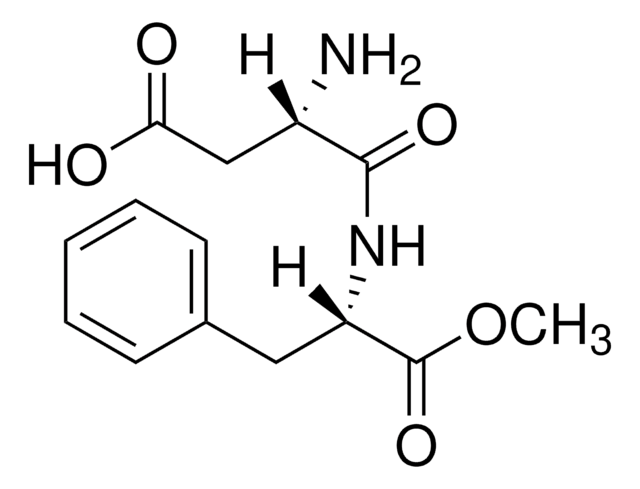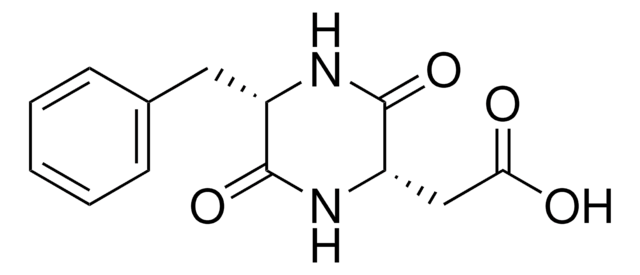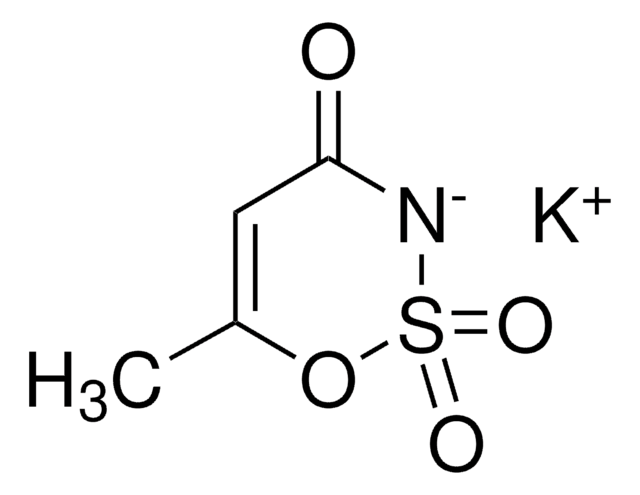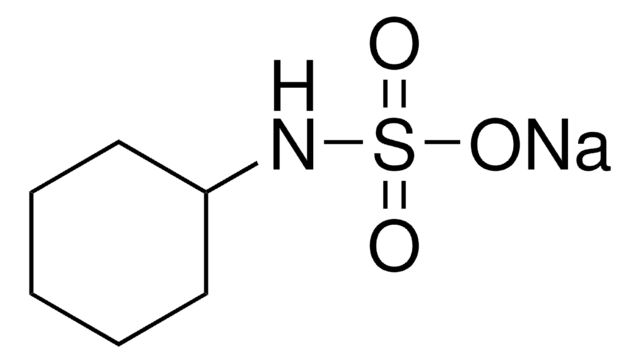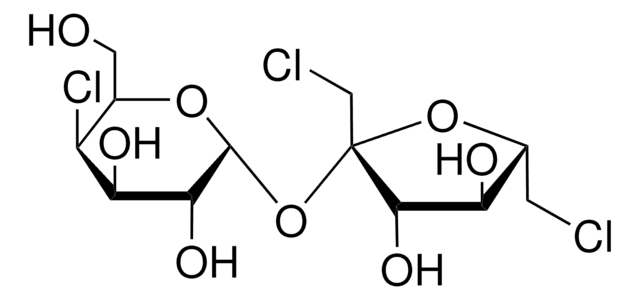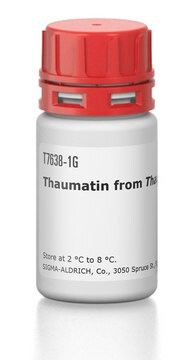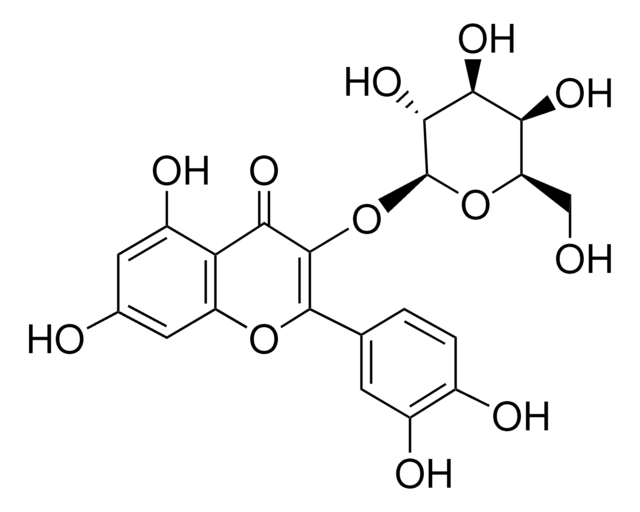おすすめの製品
グレード
pharmaceutical primary standard
認証
EP Reference Standard
APIファミリー
aspartame
メーカー/製品名
EDQM
アプリケーション
pharmaceutical (small molecule)
フォーマット
neat
保管温度
2-8°C
SMILES記法
COC(=O)[C@H](Cc1ccccc1)NC(=O)[C@@H](N)CC(O)=O
InChI
1S/C14H18N2O5/c1-21-14(20)11(7-9-5-3-2-4-6-9)16-13(19)10(15)8-12(17)18/h2-6,10-11H,7-8,15H2,1H3,(H,16,19)(H,17,18)/t10-,11-/m0/s1
InChI Key
IAOZJIPTCAWIRG-QWRGUYRKSA-N
類似した製品をお探しですか? 訪問 製品比較ガイド
詳細
この製品は薬局方標準品です。発行元の薬局方により製造・供給されています。MSDSを含む製品情報などの詳しい情報は、発行元の薬局方のウェブサイトよりご確認ください。
アプリケーション
Aspartame EP Reference standard, intended for use in laboratory tests only as specifically prescribed in the European Pharmacopoeia.
包装
The product is delivered as supplied by the issuing Pharmacopoeia. For the current unit quantity, please visit the EDQM reference substance catalogue.
その他情報
Sales restrictions may apply.
関連製品
製品番号
詳細
価格
保管分類コード
11 - Combustible Solids
WGK
WGK 2
引火点(°F)
Not applicable
引火点(℃)
Not applicable
適用法令
試験研究用途を考慮した関連法令を主に挙げております。化学物質以外については、一部の情報のみ提供しています。 製品を安全かつ合法的に使用することは、使用者の義務です。最新情報により修正される場合があります。WEBの反映には時間を要することがあるため、適宜SDSをご参照ください。
Jan Code
A1320000-40MG:
A1320000:
A1320000-1EA:
最新バージョンのいずれかを選択してください:
この製品を見ている人はこちらもチェック
Eva S Schernhammer et al.
The American journal of clinical nutrition, 96(6), 1419-1428 (2012-10-26)
Despite safety reports of the artificial sweetener aspartame, health-related concerns remain. We prospectively evaluated whether the consumption of aspartame- and sugar-containing soda is associated with risk of hematopoetic cancers. We repeatedly assessed diet in the Nurses' Health Study (NHS) and
Jean-Daniel Berset et al.
Chemosphere, 88(5), 563-569 (2012-04-17)
A HPLC-MS/MS method is presented for the simultaneous determination of frequently used artificial sweeteners (ASs) and the main metabolite of aspartame (ASP), diketopiperazine (DKP), in environmental water samples using the direct-injection (DI) technique, thereby achieving limits of quantification (LOQ) of
M Maersk et al.
European journal of clinical nutrition, 66(4), 523-529 (2012-01-19)
Observational studies indicate that sugar-sweetened soft drinks (SSSD) may promote obesity, among other factors, owing to low-satiating effects. The effect of energy in drinks on appetite is still unclear. We examined the effect of two isocaloric, but macronutrient, different beverages
Maria Maersk et al.
The American journal of clinical nutrition, 95(2), 283-289 (2011-12-30)
The consumption of sucrose-sweetened soft drinks (SSSDs) has been associated with obesity, the metabolic syndrome, and cardiovascular disorders in observational and short-term intervention studies. Too few long-term intervention studies in humans have examined the effects of soft drinks. We compared
T J Maher et al.
Environmental health perspectives, 75, 53-57 (1987-11-01)
The artificial sweetener aspartame (L-aspartyl-L-phenylalanyl-methyl ester), is consumed, primarily in beverages, by a very large number of Americans, causing significant elevations in plasma and, probably, brain phenylalanine levels. Anecdotal reports suggest that some people suffer neurologic or behavioral reactions in
ライフサイエンス、有機合成、材料科学、クロマトグラフィー、分析など、あらゆる分野の研究に経験のあるメンバーがおります。.
製品に関するお問い合わせはこちら(テクニカルサービス)